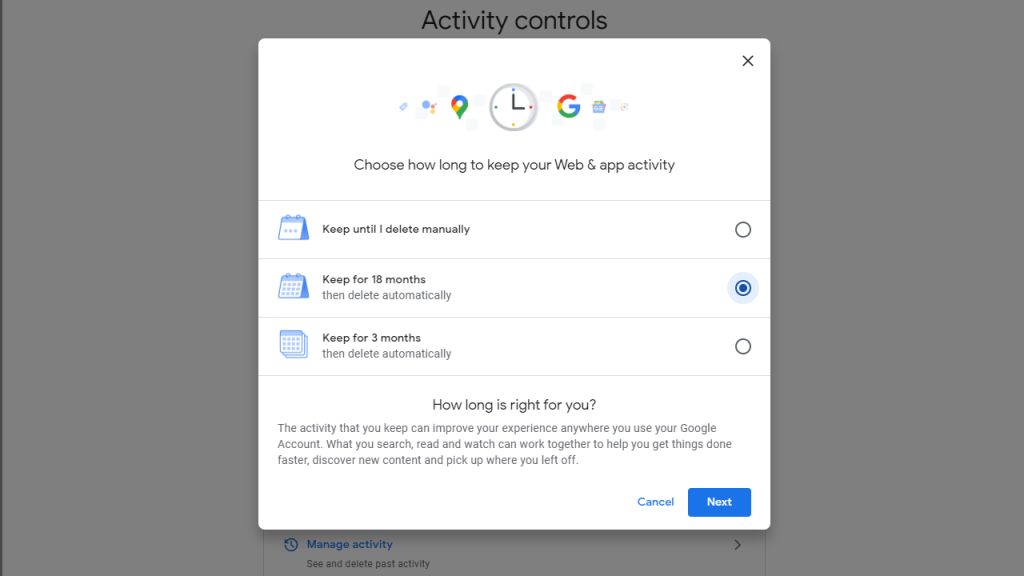With powerful hardware working together with an industry-leading camera system and intuitive AI experiences, everyday tasks have never been easier and faster
Google announces new data privacy improvements

In the wake of more consumer awareness around the importance of privacy controls, Google has announced improvements to user controls and data retention practices.
The announcement was made on 24 June by Google CEO Sundar Pichai, who said that Google’s core products will now retain less user data by default.
“Starting today, the first time you turn on Location History — which is off by default — your auto-delete option will be set to 18 months by default. Web & App Activity auto-delete will also default to 18 months for new accounts,” Pichai said.
As a result, user data will be automatically and continuously deleted every 18 months. This means users don’t have to set up these privacy controls themselves.
However, they do have the option to edit the delete settings or switch it off.
So what about users who previously enabled location and activity data?
According to Pichai, settings won’t be automatically altered for these users. Rather, Google will send in-product notifications and emails to remind users to update their settings.
This is similar to Google’s Privacy Checkup, which prompts a review of user privacy controls and passwords.
YouTube will also automatically enable activity deletion for new users and those who switch history tracking on for the first time. However, YouTube’s default deletion period is 36 months rather than 18 months.
You will be able to adjust this time period in your YouTube settings as well.
Additional Google privacy tool updates
Pichai announced several other privacy tool updates over-and-above the new data retention policies.
This includes the ability to access account controls directly from Google Search. For example, if you search for “Google Privacy Checkup” or “Is my Google Account secure?”, Google will load a tool that allows you to directly review and adjust your settings.
The company also plans to make it easier to launch incognito mode and keep it running across Google apps like Maps and YouTube.
However, Google is currently facing a lawsuit over Chrome’s Incognito Mode. The lawsuit alleges that the company still collected user data when they used Incognito Mode in Chrome.
In 2019, Google closed an Incognito Mode loophole, but this differs from the lawsuit allegations.
The lawsuit’s outcome should resolve whether the company did collect data from people using this private browsing mode.
Feature image: Google


